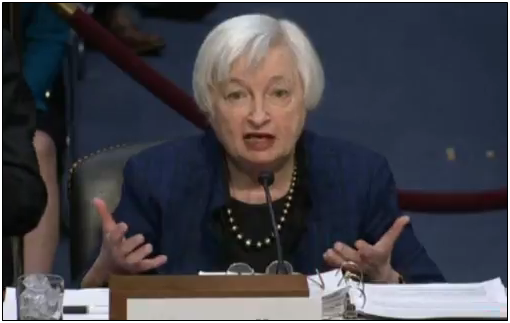By Natalia Castro
In Sept. 2016, JP Morgan CEO Jamie Dimon called for the Federal Reserve to raise interest rates in order to maintain a shred of credibility, saying, “I’d go sooner rather than later…”
But when October rolled around, neither of these things occurred. The reasons behind the Fed’s reluctance to hike interest rates have been criticized, with critics charging the Fed has turned into a political body manipulating economic views and influencing elections.
Since the interest rate drop of 2008, the Fed has kept rates at a near-zero percent throughout Obama’s shaky economy. However, nearly a decade after the Great Recession interest rates have now been kept too low for too long. The Fed, led by Janet Yellen, agreed at the December Board of Governors meeting to raise interest rates, begging the question as to what changed between the central bank’s October statements delaying the rate change and her December eagerness to pursue it.
The answer is the presidency.
Had the Fed raised rates in September or October the narrative might have been very different. Rate hikes tend to be viewed as damaging to the White House incumbent, hurting the Democrats and thus Hillary Clinton’s chances of being elected.
However, by delaying rates until a Republican was about to take office, the Fed takes on the appearance of toying with the economy for political gain, that it was in fact trying to help Clinton win.
As Donald Trump explained in Sept. 2016, he believes Fed officials “want to keep the market up so Obama goes out and lets the new guy…raise interest rates—or her raise interest rates—and watch what happens to the stock market.”
This could grow into an even larger problem over the next Presidential term, as our country is due for a recession. The Boston Globe of Dec. 2016 explains, “Not once in the full sweep of history has the United States gone more than 10 years without a recession. We’re seven years into our slow but steady recovery…Ideally, when a recession hits, the Federal Reserve would be able to cut the federal funds rate by 4 to 5 percentage points. That’s what it did during the slowdown in 2001 and again in 2007-2008.”
With such low interest rates persisting from the last recession, the Fed would have nowhere to go if a recession occurred in the near future. Yellen has left Trump expecting a recession, but with no ammunition for his administration to fight it with.
This criticism of the politicization of the Fed comes just months after Trump told media in May 2016 that he would likely replace her with a Republican when the time comes and her term ends in 2018. Reminding CNBC officials that, “She is not a Republican. When her time is up, I would most likely replace her because of the fact that I think it would be appropriate.”
As she continues shaking up political drama within her economic office, her time might be up sooner than she expected. Trump has already made it clear he is unhappy with the delay in the rate increase, and now Yellen plans to extend rate increases over all of 2017 with three individual increases. Rather than ripping the band-aid off the economy and allowing it to grow on its own, the Fed will remain in control on the economic outlook with slow motion rate increases.
That is, unless Trump requests that Yellen step down now rather than at the close of her term in 2018. This would give President-elect Trump the opportunity to put his own Republican chair into office and rebalance the Federal Reserve. Yellen is harming the economy by leaving little room for the Fed to maneuver should recession come sooner rather than later.
The Fed is meant to be an independent, nonpartisan agency relying on economic perspectives rather than political opportunity, however, the Obama administration allowed Yellen to take advantage of their power in an attempt to help Clinton win an election. Fortunately, it did not work, but the damage still may be spread out all over Trump’s term in office if the Fed continues behaving politically.
Natalia Castro is a contributing editor at Americans for Limited Government.







